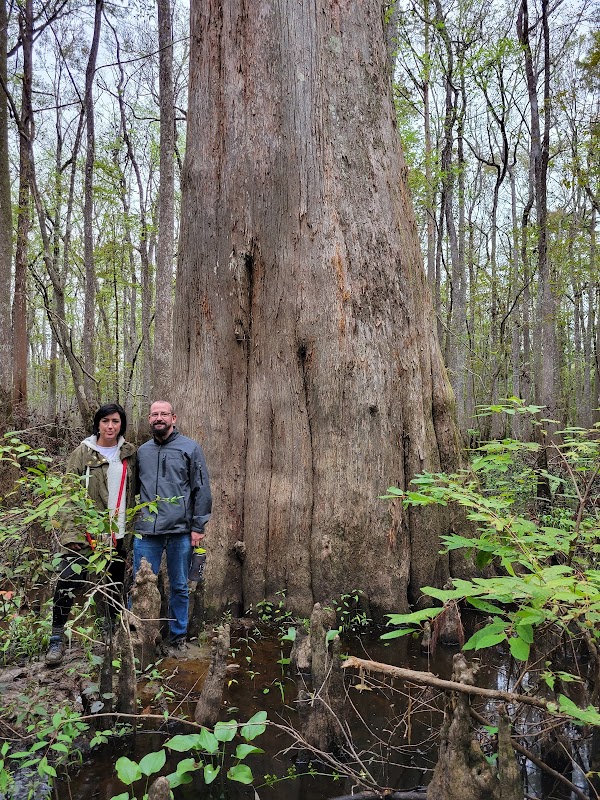
From Locals to Visitors – Why Everyone Loves Peak's Pontoons in Fort Walton Beach, Florida
Peak's Pontoons in Fort Walton Beach offers a stable, accessible gateway to explore the Gulf’s coastal waters, attracting locals and visitors alike. Whether chasing wildlife, lounging on secluded beaches, or learning local stories, this adventure blends ease with excitement.
Adventure Tips
Choose Early or Late Trips
Plan your pontoon outings in early morning or late afternoon to avoid peak sun exposure and enjoy calmer waters.
Wear Water-Ready Footwear
Opt for waterproof sandals or sturdy water shoes to safely board and exit pontoons and explore sandy shorelines.
Bring Ample Hydration
Florida’s salt air and sun can dehydrate quickly—carry plenty of water and rehydrate regularly throughout your trip.
Listen to Safety Briefings
Take full advantage of Peak’s practical safety instruction to confidently operate the boat and respond to changing conditions.
From Locals to Visitors – Why Everyone Loves Peak's Pontoons in Fort Walton Beach, Florida
Stretching out over the glistening Gulf waters of Fort Walton Beach, Peak's Pontoons has become more than just a boating service—it’s a gateway to exploration that both locals and visitors swear by. Here, adventure is practical, approachable, and filled with chances to dive into Florida’s marine playground with confidence and ease.
The pontoon boats themselves offer a steady, spacious platform, perfect for families, anglers, or groups eager to soak in the sun-dappled waves without fuss. These boats, typically seating 8-12 people, are designed for stability and comfort, ideal for novice boaters and seasoned explorers alike. What makes Peak's Pontoons stand out is how they fuse convenience with open water excitement—whether it’s a morning ride chasing the horizon or sunset tours that let the currents pull you gently along.
Beyond the boat, the experience extends into the natural world. The Choctawhatchee Bay and adjacent coastal waters tease with opportunities to watch dolphins arc through the spray or to anchor near secluded beaches where sandbars dare you to leave footprints. The salt-tinged breeze seems to push you forward, inviting exploration at a tempered pace that you set.
Planning your visit means balancing adventure with preparation. Pontoons require basic safety know-how but lack the complexity of larger vessels. Peak’s team offers thorough briefings on operating the boats, ensuring a practical approach to freedom on the water. Timing is key—early morning or late afternoon trips avoid the midday heat without losing the vibrancy of the surroundings. Hydration is critical; bring plenty of water and layered sun protection as the coastal sun has a direct line through wide-open skies.
Footwear? Choose waterproof sandals or sturdy water shoes to handle boat decks and beach landings smoothly. Pack light but smart: a waterproof bag for gear, sunscreen, and a camera to capture the ever-changing light on the waves.
For the curious, this is a chance to learn how local waters shape ecosystems and livelihoods. Spotting ospreys hunting over the water or white pelicans resting on nearby islands adds layers of engagement. Locally, Peak's Pontoons serves as both a practical outfit and a hub for storytelling—where guides share insights on the bay’s history and the environmental balance that keeps these waters fiercely alive.
Whether you’re seeking a relaxed afternoon on calm waters or a starting point for fishing or snorkeling, Peak’s Pontoons balances the thrill of adventure with approachable ease. It’s a practical invitation to understand a corner of Florida’s coast that’s vibrant and alive, waiting to be navigated on your terms.
Nearby Trips
All Adventures
Boat Charters
Water Activities
Adventures near Fort Walton Beach, Florida
Discover the unique and memorable adventures that make Fort Walton Beach, Florida special.
Frequently Asked Questions
Are Peak's Pontoons suitable for beginners?
Absolutely—these boats are designed for stability and ease of handling. Peak's staff provide thorough safety briefings, making it accessible for anyone, from first-timers to experienced boaters.
What wildlife might I see while out on the water?
Expect to spot playful dolphins, osprey hovering overhead, white pelicans resting on sandbars, and even occasional manatees in the bay’s calm areas.
Is fishing allowed or available with Peak's Pontoons?
Yes, many visitors use the pontoons as a base for inshore fishing. The boats offer enough space to keep gear handy, and local fish include redfish, trout, and flounder.
What is the best time of day for photography on the pontoons?
Early morning and late afternoon provide the softest, most dynamic light ideal for capturing water reflections, wildlife activity, and vibrant skies.
Are there hidden spots accessible only by boat?
Yes, secluded beaches and narrow coastal inlets only reachable by water reward those willing to explore beyond the main channels.
How does Peak's Pontoons contribute to environmental conservation?
The company emphasizes sustainable boating practices, including waste management and wildlife respect, educating visitors on how to minimize impact while enjoying the waterways.
Recommended Gear
Waterproof Sandals
Protect your feet on slippery decks and sandy shores while allowing water to drain easily.
Sunscreen
Broad-spectrum SPF shields your skin from the powerful Florida sun during open water trips.
Hydration Pack or Water Bottle
Ensures you stay hydrated in the salty air and under the open sky.
Lightweight Windbreaker
Blocks coastal breezes on cooler mornings or evenings, enhancing comfort.
Local Insights
Hidden Gems
- "Quiet sand spit beaches accessible only by boat for peaceful exploration"
- "Small mangrove tunnels where local bird species nest"
Wildlife
- "Bottlenose dolphins"
- "Osprey and white pelicans"
- "Manatees in quieter shallows"
History
"The Choctawhatchee Bay area has a rich history shaped by Native American tribes and Spanish exploration, with its waters serving as vital transit routes for centuries."
